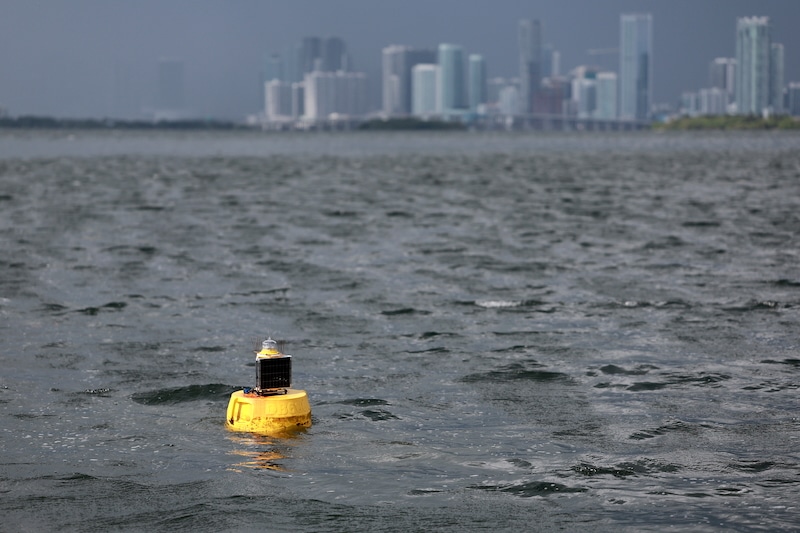
by Komoneed | Nov 11, 2024
This is a sponsored article featuring brands that have been independently assessed by our rigorous ratings system. We’re proud to only collaborate with “Good” and “Great” rated brands. Learn more. Every month, Good On You’s global team selects their favourite items from more sustainable fashion and beauty brands. More ethical clothes, accessories, and beauty […]
The post More Sustainable Picks From the Good On You Team appeared first on Good On You.

by Komoneed | Nov 10, 2024
Australian technology company AnteoTech Ltd will receive almost $4 million in funding from the Australian Renewable Energy Agency (ARENA) to commercialise its new lithium-ion battery anode technology.
Spanning three years, the $11.1 million Silicon Anode Technology for Lithium-Ion Batteries project is focused on commercialising AnteoTech’s proprietary silicon anode technology. Through doing this, the project also seeks to reduce battery storage costs and enable longer driving ranges for EVs.
ARENA CEO Darren Miller said the project represents an investment in homegrown battery technology with the potential to change energy storage on a global scale.
“As we push towards our net zero ambitions, we need to ensure we have enough energy storage so that we can use renewable energy when we need it at any time of the day, whether that be for industry, homes or the growing switch to electric vehicles,” he said.
“Innovation in storage technologies is going to help us achieve this, and AnteoTech’s technology could create batteries higher in density, while utilising cheap abundant materials that could bring costs down.”
Miller said ARENA is hopeful the technology could be quickly integrated into existing manufacturing processes so that the benefits can be accessed by customers in a timely manner.
The majority of lithium-ion batteries produced today use graphite anodes. While silicon anodes have a much higher energy density, challenges with cell degradation have limited commercialisation of the technology. AnteoTech’s proprietary binder technology, Anteo X, is reportedly able to reduce degradation rates associated with silicon anodes by maintaining the structural stability within the anode during cycling.
ARENA funding will help AnteoTech progress to a larger scale of prototyping, which will enable further testing of the technology by AnteoTech and its prospective customers.
Throughout the duration of the project, AnteoTech will install new electrode coating equipment and pouch cell testing equipment at its existing site in Brisbane. The company will then commence a program of rigorous testing, including providing prototype anodes to potential customers.
AnteoTech CEO David Radford said the grant funding would help to accelerate and develop the company’s product portfolio.
“We are incredibly grateful for the support provided by ARENA, who has an extensive track record of funding successful technologies,” he said.
“We are excited by the opportunities that are ahead of us and look forward to contributing to Australia’s growing battery landscape by delivering battery solutions that will support our net zero energy transition.”
AnteoTech expects technical work on the program to commence this month, with design and construction of the Brisbane site happening in early 2025. The entire ARENA project is due for completion in late 2027.
Image credit: iStock.com/petovarga

by Komoneed | Nov 10, 2024
In the election held November 5, voters in Washington state upheld one of the biggest climate laws in the U.S. against challenges made by Republicans. Voters decided against a conservative repeal effort for the Climate Commitment Act, which was first signed into law by Gov. Jay Inslee in 2021. The law set up a state […]
The post Washington State Voters Uphold Climate Commitment Act appeared first on EcoWatch.

by Komoneed | Nov 10, 2024
A new study has found per- and polyfluoroalkyl substances (PFAS) in Miami’s rainwater. It is the most recent evidence that “forever chemicals” get caught up in the water cycle and circulate over great distances. “PFAS are practically everywhere,” said Natalia Soares Quinete, author of the study and an assistant professor of chemistry at Florida International […]
The post It’s Raining PFAS ‘Forever Chemicals’ in Miami, Study Finds appeared first on EcoWatch.

by Komoneed | Nov 10, 2024
Beyond Blueprints: Accelerate Implementation Now
jschoshinski
Thu, 11/07/2024 – 20:26
Under the Paris Agreement, countries devise blueprints for reducing greenhouse gas emissions and adapting to climate change called Nationally Determined Contributions (NDCs) and National Adaptation Plans (NAPs). Countries’ current commitments do not put the world on track to limit and avoid dangerous global warming but, at the same time, achieving the current goals in countries’ NDCs and NAPs is both difficult and complex. Supporting countries on their respective journeys—from more ambitious policy formulation and finance mobilization to investment promotion, implementation, and monitoring and evaluation—is foundational to achieving both country and global climate ambitions.
USAID’s Comprehensive Action for Climate Change Initiative (CACCI), led by Abt Global, was launched at COP26 with the goal of identifying promising mitigation and adaptation investment opportunities with private sector partners to help countries meet their climate commitments and strengthen their climate resilience. It provides support to countries by helping them increase policy ambitions and legislative directives for emissions reductions and address critical implementation barriers related to information, finance, technology, capacity, and regulations.
Over the past two years, CACCI has made progress on several fronts, including increasing climate policy ambition, mobilizing the private sector, enhancing accountability and transparency, and bridging the gap between intention and results. By creating a positive feedback loop between implementation success and greater ambition, countries see a realistic pathway to achieving their targets, making them more likely to commit to even more ambitious targets.
Increasing Climate Policy Ambition Through Foundational Target Setting
CACCI responds in tailored ways to direct requests from countries. For example, supporting higher-emitting countries, such as South Africa, takes a whole-of-economy approach in setting new emissions targets. CACCI is aiding South Africa’s Long-Term Low Emission Development Strategy (LT-LEDS) submission to the UN Framework Convention on Climate Change. The LT-LEDS provides a vision for achieving net-zero emissions by mid-century. It relies on evidence and modeling that informs the sectoral measures and investments for a whole-of-economy approach.
On the other hand, assisting lower-emitting countries, such as Jamaica, focuses on improving the enabling environment to support implementation. CACCI supports the Jamaican Ministry of Green Economy and Job Creation in developing climate change legislation, shaping the enabling environment for ambitious climate action. This includes setting the vision for decarbonization, establishing mandates for cross-sectoral coordination, clarifying institutional arrangements, and enabling private investment and finance for new technologies.
Mobilizing and Encouraging the Private Sector
Given the scale of the climate crisis, achieving climate goals requires significant private investments. CACCI collaborated with the Boston Consulting Group to create an investment impact framework to help investors articulate adaptation and resilience project bankability in terms of feasibility, resilience impact, co-benefits, and profitability. CACCI worked with Nigeria’s National Council on Climate Change, building investment cases for six projects valued at over $1.1 billion in the agriculture, water, and energy sectors.
Through the CACCI Partnership for Climate Action, private sector partners are articulating how their investments address climate change and support national climate agendas. For example, Genesis Energy is investing in renewable energy projects in Zambia to improve energy, health, and agriculture outcomes. Those projects include a hybrid solar and wind plant, solar electrification for healthcare facilities, and solar-powered cold chain storage to reduce post-harvest losses.
Enhancing Accountability and Transparency
Effective monitoring, evaluation, and learning mechanisms are essential for tracking and reporting progress, identifying gaps, and adjusting strategies and ambitions. Understanding actions at local, national, and regional levels is crucial for benchmarking progress and to meeting global commitments. CACCI is supporting the African Union Commission through the development of a digital Monitoring, Reporting, and Learning Dashboard, which offers a consistent framework for member states to report on NDC implementation progress.
Bridging the Gap Between Intention and Results
Despite the difficulty of meeting climate commitments, countries must take action to avoid the most catastrophic impacts of climate change. As countries put in place the building blocks of progress, it is important to act, not just plan. Taking action, however imperfect, is the best shot at bridging the gap between intention and results. CACCI will continue to meet countries where they are on their journeys, providing tailored support to implement current goals, increase policy ambitions, and enhance resilience to climate impacts.
Teaser Text
CACC was launched at COP26 with the goal of identifying promising mitigation and adaptation investment opportunities with private sector partners to help countries meet their climate commitments and strengthen their climate resilience.
Subtitle
Balancing the Need for Higher Ambition with Continued Progress Towards Countries’ Climate Change Commitments
Publish Date
Thu, 11/07/2024 – 12:00
Author(s)
Dr. Molly Hellmuth
John Heermans
Dr. Emily Weeks
Hero Image
Jeffreys Bay Wind Farm.jpg
Blog Type
Blog Post
Strategic Objective
Adaptation
Mitigation
Region
Global
Topic
Adaptation
Emissions
Low Emission Development
Climate
Climate Change Integration
Climate Finance
Climate Strategy
Climate Strategy Implementation
Mitigation
Monitoring, Evaluation, and Learning
Partnership
Private Sector Engagement
Resilience
Country
Nigeria
South Africa
Zambia
Sectors
Climate
Projects
USAID Comprehensive Action for Climate Change Initiative (CACCI)
Show Download Link
On






